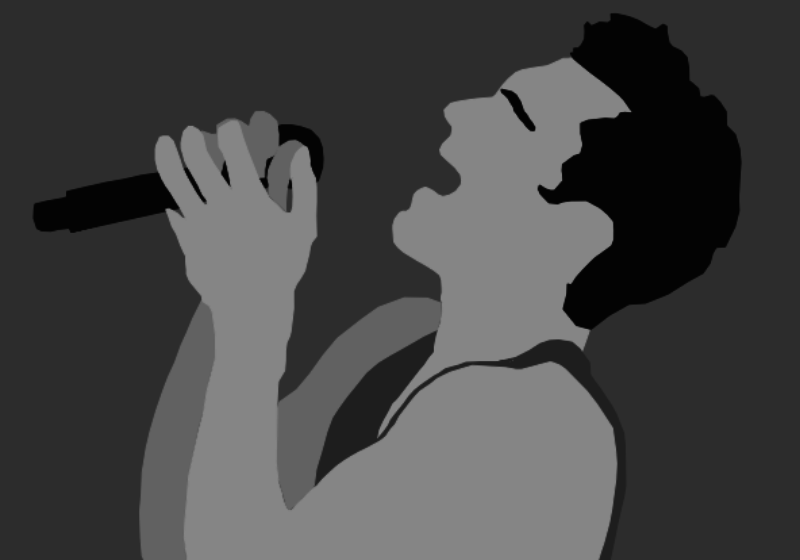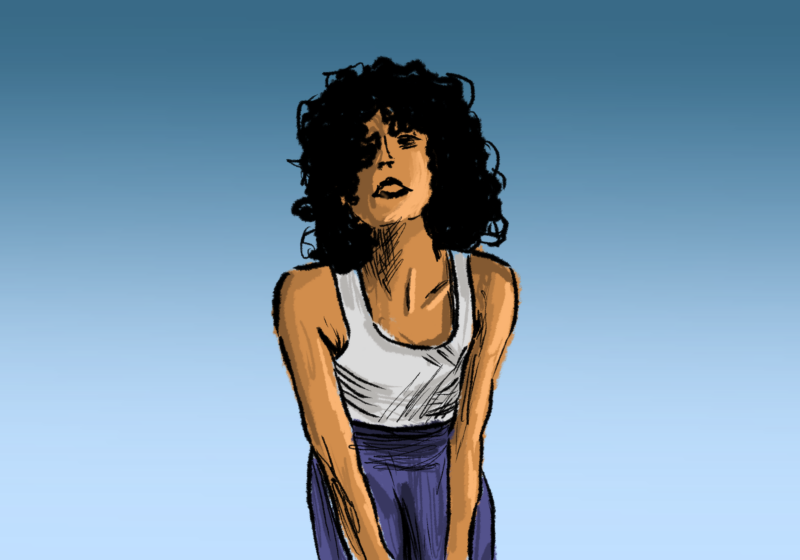Preceding 2012, Maroon 5 could be defined by James Valentine’s bar-chord riffs, a slick baseline from Mickey Madden, Jesse Carmichael’s handwritten harmonies, and Adam Levine’s elastic vocal range. Not to mention Matt Flynn’s ability to craft a tempo.
Five years on, a band that once relied heavily upon musicianship and relatable and well-written melodies now solicits out-of-place collaborations and couches them in radio-friendly production.
It’s hard to believe there is an existing Maroon 5 cut where all instruments have a voice. Guitar. Bass. Snares. Keys.
But on the band’s latest musical installment, “Red Pill Blues,” we’re reminded of the stage before the Wiz Khalifa–assisted “Payphone” and the carnivorous “Animals,” crafted and produced by pop tycoons Shellback and Benny Blanco.
Though the record skews toward Maroon 5’s pre-Max Martin epoch, it isn’t anywhere near reminiscent of the group’s masterful debut, “Songs About Jane,” and has difficulty staying committed to the band’s primitive era — an era when their alias actually was logical.
The original five-piece now performs and promotes as a unit of seven. The newest additions are keyboardist PJ Morton and frequent collaborating writer Sam Farrar. The extra personnel allows the band to execute its generic, synthetic percussion and electronic vocalization.
Before the SZA-assisted “What Lovers Do” was released, the band gave no hope that its instruments would breathe again.The two rap-infused singles “Don’t Wanna Know,” which uses an over-executed marimba loop, and “Cold” came across as robotic and regressive.
With this record, Maroon 5 has put its musicianship out of its misery.
Lead crooner Levine, originally known for writing creative yet relatable heartbreak narratives, proves he still has this capacity. On the forgettable but funky “Plastic Rose,” Levine pens a quirky metaphor about a fabricated love.
“Whiskey,” the most lyrically sophisticated ballad on the record, shoots itself in the foot when haunting and unhelpful synths creep onto the track. The foreign bridge rap from A$AP Rocky drains the song out, his auto-tuned voice smothering the track.
The collaborations on this record for the most part aren’t natural. Musically, they serve to benefit the collaborators rather than Maroon 5 itself. When the Julia Michael–assisted “Help Me Out” arrives, it sounds like a follow-up to any of her solo singles. SZA’s appearance lifts her up, but swallows the band with her rather-generic lyrics.
The collaboration that works the best is from rapper and producer LunchMoney Lewis.
His verses flow perfectly with the Motown-influenced “Who I Am.” The track is distorted by a strange synth, but this is the first record in years where all instruments are given love, including Flynn’s hi-hat.
Other tracks worth praise include opener “Best 4 U” and bonus track “Visions,” which emulates the band’s homage to The Police, allowing Madden’s bass to shine once again. “Closure” is an 11-minute instrumental jam in which the band’s jazz-funk roots at last take center stage.
Maroon 5 shuffles between lazy writing and great musicianship, something that’s made apparent with the name of this record and even the album’s artwork. The Snapchat theme represents our modern world, which apparently the band has struggled with according to an interview promoting the record with Howard Stern.
“I think there’s a lot of energy that is poisonous,” Levine said. “Now that social media kind of heightens everything, and there’s so much out there — there’s so much stimuli, I just feel like there’s a lot of poison that is out there.”
Does Maroon 5 know what it wants? On this record it doesn’t seem sure, though while on the air with Stern, Levine articulated one constant desire.
“We enjoy popularity,” he said. “We like to play songs that people get down with.”
This reflects the group’s choices following its musically brilliant but not commercially received record “Hands All Over.” Its member have cited their 2011 smash hit “Moves Like Jagger” as what “saved” and “revived” the band.
Chart and radio time is obviously important to Levine and Maroon 5, but the bandmembers clearly yearn to be pop music centrists, who portray their musicianship while also connecting to the greater public.
On the new album, the collective neglects one trend of 2017, which Billboard identifies as the “Vocalist Era.” In accordance with the Twitter jargon #talentwins, stripped-down tracks like Lady Gaga’s “Million Reasons” and James Arthur’s “Say You Won’t Let Go” achieved airplay and connected to listeners, ameliorating the tumultuous “energy” Levine refers to.
Moving forward, Maroon 5 has the power to make to its artistry shine through while also engaging listeners. But the group’s latest makes me wonder if it will let talent win.






